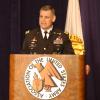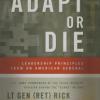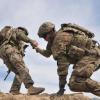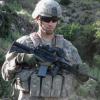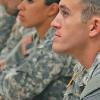Threats to national security are increasing and missile defense resources are stretched thin, the commander of the U.S. Army Space and Missile Defense Command/Army Forces Strategic Command and Joint Functional Component Command for Integrated Missile Defense said."The technology our adversaries possess is growing in capacity, capability, quantity and quality," said Lt. Gen. David Mann, speaking at the Association of the United States Army’s Air and Missile Defense Hot Topic forum in Arlington, Va.Twenty-two countries in the world have ballistic missile capability, said Mann."Of those 22, we...
It is hearing season on the hill and AUSA has submitted testimony before the Joint House and Senate Veteran’s Affairs Committees, and will submit testimony to the Personnel Subcommittees of the Senate and House Armed Services Committees in conjunction with our partners in The Military Coalition.There are encouraging signs that defense spending will be higher than last year, and much higher than sequestration will allow, but only because Congress looks as though it will add money to the Overseas Contingency Fund which does not have to be offset.That will allow Congress not to exceed...
Lessons From a Lifetime of LeadershipBy Lt. Col. James Jay Carafano, U.S. Army retiredAdapt or Die: Leadership Principles From an American General. Lt. Gen. Rick Lynch, U.S. Army retired. Baker Books. 233 pages. $22.99.
Lessons From a Lifetime of LeadershipBy Lt. Col. James Jay Carafano, U.S. Army retiredAdapt or Die: Leadership Principles From an American General. Lt. Gen. Rick Lynch, U.S. Army retired. Baker Books. 233 pages. $22.99.
Lessons From a Lifetime of LeadershipBy Lt. Col. James Jay Carafano, U.S. Army retiredAdapt or Die: Leadership Principles From an American General. Lt. Gen. Rick Lynch, U.S. Army retired. Baker Books. 233 pages. $22.99.
Lessons From a Lifetime of LeadershipBy Lt. Col. James Jay Carafano, U.S. Army retiredAdapt or Die: Leadership Principles From an American General. Lt. Gen. Rick Lynch, U.S. Army retired. Baker Books. 233 pages. $22.99.
Lessons From a Lifetime of LeadershipBy Lt. Col. James Jay Carafano, U.S. Army retiredAdapt or Die: Leadership Principles From an American General. Lt. Gen. Rick Lynch, U.S. Army retired. Baker Books. 233 pages. $22.99.
There is increased risk of moral injury when soldiers are forced to choose between living by the Army Values, sticking to their own moral beliefs and following orders. Unit commanders and leaders must understand the importance of the moral dimension of fighting a war. They have a huge responsibility: ensuring that ethical standards are maintained in accordance with Army Values.Moral injury is the psychological injury that may occur when there has been a betrayal of what’s right by someone who holds legitimate authority in a high-stakes situation, said Jonathan Shay, a clinical psychiatrist at...
Long before Gen. George S. Patton Jr. achieved international recognition as one of World War II’s most celebrated heroes, he had compiled an enviable military record. A recipient of the Distinguished Service Cross for gallantry in action and the Distinguished Service Medal for distinction in a post of high responsibility during World War I, Patton emerged as one of the U.S. Army’s most vocal proponents of armored warfare. Less well-known was Patton’s tour of duty with the Hawaiian Division, where his promising career was nearly sidetracked when he was relieved from duty as the division’s...
On Sept. 8, 2009, in Kunar Province, Afghanistan, Capt. William D. Swenson earned the Medal of Honor by displaying conspicuous gallantry. That heroic event revealed Swenson’s true character. As he placed a mortally wounded comrade on a helicopter, a video camera captured the scene as he bent over and kissed him briefly on the forehead before returning to evacuate at least four additional comrades.That kiss tells us more about Swenson and, more broadly, about the essence of heroism than anything found in his Medal of Honor citation. Swenson’s teammates report that this behavior was typical...
On Sept. 8, 2009, in Kunar Province, Afghanistan, Capt. William D. Swenson earned the Medal of Honor by displaying conspicuous gallantry. That heroic event revealed Swenson’s true character. As he placed a mortally wounded comrade on a helicopter, a video camera captured the scene as he bent over and kissed him briefly on the forehead before returning to evacuate at least four additional comrades.That kiss tells us more about Swenson and, more broadly, about the essence of heroism than anything found in his Medal of Honor citation. Swenson’s teammates report that this behavior was typical...
The Army has ambitious plans for solidifying and expanding engagement with Asia and Pacific nations, but this effort—like almost every military program—faces a budgetary threat.Over the next five years, the Army plans to participate in 29 exercises as part of the Pacific Pathways concept of strengthening bonds with other nations, according to Gen. Vincent K. Brooks, U.S. Army Pacific commanding general. Those exercises will be held in 12 countries and involve soldiers from units throughout the U.S. and overseas bases.What It IsMost of the exercises will concentrate on humanitarian relief and...
After almost a decade and a half of continuous war, the Army has an opportunity to rethink the relationship between traditional schoolhouse learning and the variety of its continuous learning practices. Now is a good time to start that discussion with the help of the officers and sergeants who have experienced both while at war. These leaders may hold the answer to what the Army should do next. If you are one of those leaders, we want to hear from you.The Army’s officer and NCO professional education programs are modeled after episodic learning with the aim to create understanding of doctrinal...
After almost a decade and a half of continuous war, the Army has an opportunity to rethink the relationship between traditional schoolhouse learning and the variety of its continuous learning practices. Now is a good time to start that discussion with the help of the officers and sergeants who have experienced both while at war. These leaders may hold the answer to what the Army should do next. If you are one of those leaders, we want to hear from you.The Army’s officer and NCO professional education programs are modeled after episodic learning with the aim to create understanding of doctrinal...
Brain wave-reading threat detectors can dramatically increase a soldier’s ability to spot danger. Advances in telepresence might spare soldiers by letting them send mechanical avatars into battle instead of going in person. Brain stimulation by ultrasound, electromagnetic fields and mild electric currents shows promise of sharpening soldiers’ minds. Could drugs or implanted microchips dull or eliminate the memories that cause post-traumatic stress disorder?Researchers believe a skintight suit called Warrior Web will help soldiers run faster, lift more weight, and hike farther with less fatigue...


